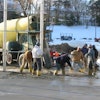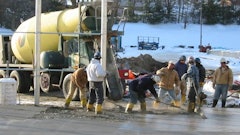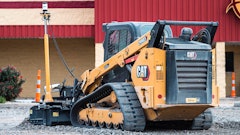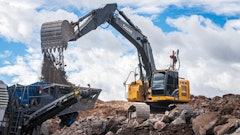The April 2 approval of a surface transportation bill by the U.S. House of Representatives demonstrated, finally, an overwhelming recognition that the nation's roadways are a valued resource that are in desperate need of maintenance. That the amount of money approved by the House — $275 million over six years — is woefully inadequate, barely edging out President George Bush's $247 billion proposal and falling far short of the U.S. Senate's already approved $318 billion proposal, is unfortunate. But there certainly is room between the House and Senate figures for additional funding to trickle up, perhaps even reaching the $45.2 billion annually the American Road & Transportation Builders Association says is needed simply "to maintain pavement performance and congestion level." So at this point merely the recognition by the Congress that the nation's transportation infrastructure warrants financial support is a step in the right direction.
Reauthorization of this federal program — when it does finally occur — means a lot to contractors who make their living through state and federal jobs, but it also has an impact on contractors who focus on commercial work. Because when federal and state funds dry up, large contractors with large overheads look elsewhere for work — and the paving and pavement maintenance contractors, who thought they were immune to fluctuations in federal spending, get squeezed. The larger contractors begin pursuing work they normally wouldn't go after (and, frankly, probably don't want), and the contractors who focus on commercial work suddenly have a new competitor — and a competitor who competes primarily on price (because he needs to keep the cash flowing in — and because he can). Contractors throughout the country have been feeling the pressure of the "new" competition since federal funding went into hibernation last fall — and they have cut margins, increased service, and basically adapted to survive. So if you're on of those working to weather this squeeze while Congress fiddled about funding, you can relax a little. Not long ago we had nothing; today we've got better than that.
















